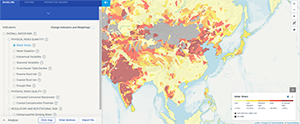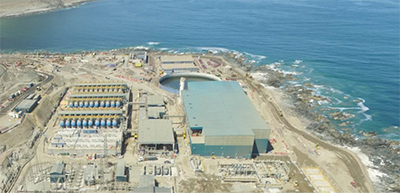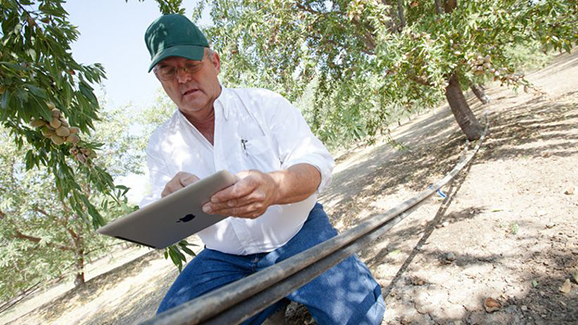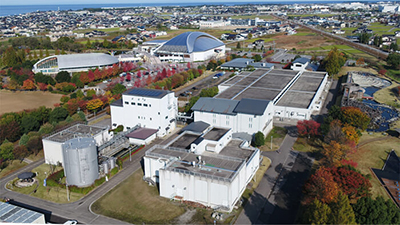Water is essential for human activity, circulating around the planet while changing to and from solid, liquid and gaseous states. 70% of the Earth’s surface is covered with water, and of that amount, 97.5% is salt water. The remaining 2.5% is fresh water which supports human activity, including business activities. However, about three-quarters of that remaining fresh water exists in a frozen state such as within glaciers. Therefore, the amount of freshwater that is actually available for human use accounts for not even 1% of the Earth’s total amount of water. Under the United Nations’ Sustainable Development Goals (SDGs), the world is striving to secure access to safe drinking water for all people, and through business activities and other economic initiatives, each country is also working to achieve more prosperous livelihoods, including access to water. Since economic scale and water consumption are closely correlated, companies must use water, one of the Earth’s precious natural resources, in an efficient and appropriate manner while also aiming to solve challenges related to water issues through their businesses.
MC has clarified its intention to promote the “sustainable use of natural resources including water” in its Environmental Charter, which was first established in 1996 and later revised in 2017. The MC Group, which engages in a wide range of businesses worldwide, has identified "Conserving and Effectively Utilizing Natural Capital" as part of its Materiality. It recognizes water as an essential element for its business activities and places critical importance on the sustainable use of water in all of its operations. In particular, MC identifies relevant risks and opportunities in a timely manner and, with the goal of achieving the sustainable use of water, establishes appropriate water consumption, recycling, reuse, and treatment throughout its operations and makes efforts to improve use efficiency and reduce consumption. Furthermore, MC will contribute to the resolution of global water issues through its business by establishing water infrastructure businesses and developing comprehensive water operations.
Aiming to reduce the consumption of limited water resources, for FY2024, MC has set a target to reduce water consumption at its Head Office compared to the consumption in the previous year. MC also conducts a sustainability survey which aims to track the withdrawals, discharges and recycling of water for the total operations of its portfolio investment companies. In addition to achieving a 100% response rate for this survey, MC is conducting an analysis of individual increases and decreases of the various surveyed items.
| Officer in Charge | Kenji Kobayashi (Senior Vice President, Corporate Functional Officer, CSEO) |
|---|---|
| Deliberative Body (A subcommittee under the Executive Committee, a management decision-making body) |
Sustainability Committee Important matters related to water resources deliberated by the Sustainability Committee are formally approved by the Executive Committee and put forward or reported to the Board of Directors based on prescribed standards. |
| Department in Charge | Sustainability Dept. |
When reviewing and making decisions on loan and investment proposals, MC conducts a comprehensive screening process which considers not only economic aspects, but ESG factors as well. From a water resources perspective, MC has set up a screening process for decision-making that first confirms compliance with environmental regulations related to such factors as water discharge and withdrawals (confirmation of regulatory risks), as well as the impact of water withdrawals on surrounding communities, local society, biodiversity, and the impact of climate change on the fresh water environment (confirmation of physical risks). For this screening process, particularly for businesses in areas considered to have high levels of water stress, MC utilizes the World Resource Institute (WRI)’s Aqueduct tool in order to incorporate external perspectives. Besides screening new investment and exit proposals, MC strives to make improvements to existing business investments by monitoring their management practices.
In addition, MC conducts annual surveys of suppliers to confirm their compliance with the Mitsubishi Corporation Policy for Sustainable Supply Chain Management, which outlines MC’s actions to address human rights, labor rights, and environmental issues in supply chains for products with high environmental or social risks. Items covered in these surveys include consideration for impacts on local communities and ecosystems; whether suppliers have policies, strategies, and guidelines designed to prevent river pollution and set and monitor water consumption reduction targets; and the content of any water-related surveys carried out. (See the Supply Chain Management page for additional details).
In addition to Group-wide efforts to reduce water consumption, we carried out water stress analysis of group companies with high water withdrawal amounts in order to identify priority reduction targets.
The process of analysis and some results are described below.

According to Aqueduct, a Thai tapioca starch manufacturing and processing company is based in an area affected by high water stress. The company's location, classified as the Mekong River Basin, is generally at high risk of water shortages, droughts, and inadequate wastewater treatment. However, based on the analysis of the impact on operations using the WWF Water Risk Filter— and taking into account business characteristics that we identified after conducting interviews with management during site visits—the company's operational risk score was “Low.“
The Company has set a water recycling ratio target of 10% to reduce water consumption per unit of production volume, and is working on water reuse by recirculating water used to backwash microfiltration membranes, etc.

OLAM
Since copper mining requires a large amount of water, each mine is working to introduce technologies to maximize the water efficiency in the operational processes in order to reduce new water intake. At Los Bronces Copper Mine (located in Chile's Metropolitan Region), in which MC invests together with Anglo American plc (AA), approximately 80% of the water utilized in the production processes is recycled. Efforts are also being made to increase water recycling from tailings and utilize industrial wastewater and treated sewage water procured from third parties. In addition, a contract has recently been signed for the procurement of desalinated water from 2026 to ensure stable and long-term water supply for operations and provide clean water to the local communities of approximately 35,000 residents.
The Escondida copper mine, one of MC’s major investments, is located in the desert region of northern Chile and boasts the largest production volume in the world. At the mine site, water consumption is reduced in the ore processing phase through water-saving and reuse, among other means. Moreover, an investment, approximately US$4 billion to date, has been made in the construction of the desalination plant with one of the largest processing and pumping capacities in the world; the desalination plant has eliminated reliance on subterranean aquifers covering all the project’s water requirements since the end of 2019. With water shortages due to drought becoming an issue for Chile in recent years, we will continue to promote environmental protection and coexistence with local communities.
The Los Pelambres copper mine, one of MC’s investments, is a large-scale copper mine located in the mountainous region of central Chile. Water preservation is promoted at the mine through various measures such as the reduction of water usage, recycling of water in operational processes, and the utilization of a desalination plant which commenced operations at the site in 2023. Furthermore, a plan to double the plant's treatment capacity from the current 400l/s level to 800l/s by 2027 is currently ongoing, thereby aiming to further reduce reliance on freshwater extraction. As water scarcity and drought becomes an increasingly critical issue for Chile, we will continue to focus on environmental protection measures and coexistence with local communities while striving to achieve a stable supply of resources from the site by securing water for its operations.

Toyo Reizo Co., Ltd., one of MC’s consolidated subsidiaries, has declared in its environmental policy that it will reduce the amount of water resources to be used in its production processes and will take preventative measures against the discharge of pollutants. It has also set targets to reduce water consumption on both a single fiscal year and mid-term basis, and engages in reduction activities. In particular, MC aims to reduce its environmental impact by saving water. To achieve this, it calculates consumption and discharge amounts in plants and related facilities with high water consumption for monthly assessment and review. In addition to these efforts to reduce water consumption, MC has also set targets for the reduction of CO2 and waste discharge and for the implementation rate of food waste recycling, etc. while seeking continual improvements though a PDCA cycle.

MC affiliate Olam Group Limited (Olam) has endorsed the UN CEO Water Mandate (a United Nations Global Compact initiative that supports corporate involvement in activities relating to water, sanitation, and the SDGs) and is working to develop policies designed to mitigate, understand, and manage water risks.
Examples of specific efforts by Olam to reduce its water consumption include the establishment, in 2022, of usage reduction targets for 2030 at its almond orchards in Australia and the U.S., as well as a commitment to improve water use efficiency throughout each orchards by monitoring soil and plant moisture , and to remediate 75% of wet and saline areas . Additionally, at the soluble coffee facility in Vietnam, Olam has installed a reverse osmosis system to recover and reuse the rejected water during processing, continuously investing in measures and equipment to improve water efficiency. Regarding water quality management, Olam has maintained strict control over water quality at the palm plantations in Gabon since 2023, carrying out regular inspections by third parties to prevent cross-contamination in nearby rivers.
In 2022, Olam partnered with the USDA Forest Service, the National Forest Foundation, and Unilever to focus on improving the resilience of forested watershed and conservation of water within the Pine Flats watershed in California and reduce the risk of severe wildfires. This project is expected to replenish approximately 2.5 billion liters of water and reduce CO2 emissions by 80,000 tons annually.


MC is delivering seawater desalination projects in drought regions of the world such as the Atacama Desert in Chile and the State of Qatar in the Middle East which contribute to the alleviation of water stress in those regions. Northern Chile is facing serious depletion of groundwater, and alternative water sources are required in consideration of local communities and the agricultural industry. MC provides a stable supply of desalted water to mines and farmlands in the region. In Qatar, MC has been delivering an Independent Water and Power Project that supplies 2,520MW of electricity and 900,000 tons per day of water (which comprises 35% of Qatar’s desalination capacity) to Qatar General Electricity & Water Corporation for over 25 years. MC is delivering the project in cooperation with the Qatari government to fulfill growing demand for water associated with economic development and population growth and to contribute to the long-term development of the country.

As living standards improve, certain regions are experiencing increasingly severe water shortages. Water utilities, which provide a stable supply of sanitary water, have become indispensable for the survival of humanity and the viability of cities. MC is contributing to the resolution of various challenges pertaining to water resources by developing water-related infrastructure and addressing local water issues.
MC affiliate Swing Corporation is engaged in the domestic waterworks business, including the design and construction of water and sewage facilities and the provision of operation and maintenance services. Specifically, MC is engaged in phosphorus recovery from sewage sludge for fertilizer use at the Higashinada Sewage Treatment Plant in Kobe, Hyogo Prefecture. It promotes resource recovery through local production for local consumption and recycling (in FY2020, the project won the innovation category in a wastewater recycling award sponsored by the Japanese Ministry of Land, Infrastructure, Transport and Tourism). Swing Corporation developed a private finance initiative (PFI) project in the city of Kurobe, Toyama Prefecture to establish a facility for the beneficial reuse of sewage biomass and has assumed responsibility for everything from financing to design, construction, maintenance and operation. The sewage sludge is mixed with coffee residue to extract biogas, which is used for power generation and sludge drying, and the dried sludge can be used effectively as an alternative to coal and as a raw material for fertilizer (in FY2011, the project won the sustainability category in a wastewater recycling award sponsored by the Japanese Ministry of Land, Infrastructure, Transport and Tourism).

MC has built up experience in the water business in the UK, Japan, Australia, the Philippines, Chile and other countries in Asia, the Middle East and Africa. By drawing on private-sector funds and technology, we will continue to improve efficiency and offer higher-quality water services. We will also provide water-related solutions optimized for each different region to address water shortages and underdevelopment of water infrastructure with the aim of improving people’s living conditions and protecting the local environment.
MC actively disseminates information about its ESG-related initiatives to its various stakeholders around the world. CDP is a UK-based international environmental NGO, and conducts activities to promote corporate environmental information disclosure at the request of institutional investors around the world. It holds the world’s largest database of corporate disclosures on climate change initiatives, and since FY2011, MC has responded the CDP Water Security questionnaire, which evaluates corporate water management.
MC participates in the Water Project*The project was launched based on the Basic Act on Water Cycles in 2014. The Water Project was founded to build a public-private collaboration platform and to promote initiatives and self-motivated approaches from private sector companies aimed at achieving sound water cycles and water environment preservation.*, a public-private initiative which promotes initiatives aimed at preserving or restoring healthy water cycles. MC shares information with other companies on water risks and water-related initiatives, and considers how to pursue such initiatives internally.

MC is promoting activities, both through business and corporate philanthropy initiatives, to maintain and restore sound water cycles. MC also disseminates information about its initiatives and the importance of water through internal and external communication.
MC supports a wide range of initiatives focusing on environmental and sustainable development in the Americas, Europe and Africa through the Mitsubishi Corporation Foundation for the Americas (MCFA) and the Mitsubishi Corporation Fund for Europe and Africa (MCFEA). Some examples include supporting mangrove ecosystem conservation activities in Senegal through ENDA Energie and U.S. Gulf Coast cleanup activities to protect biodiversity and conserve shorelines through a partnership with American Bird Conservancy and SPLASh.